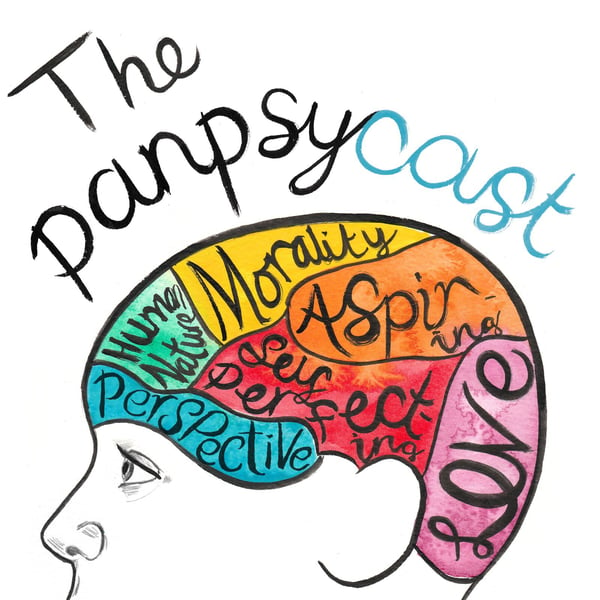Episode 119, ‘Perfect Me’ with Heather Widdows (Part II - Further Analysis and Discussion)
The Panpsycast Philosophy Podcast
Jack Symes | Andrew Horton, Oliver Marley, and Rose de Castellane
4.8 • 604 Ratings
🗓️ 2 July 2023
⏱️ 40 minutes
🧾️ Download transcript
Summary
Beauty is nothing trivial. We get up in the morning, look in the mirror, and ask ourselves: ‘How do I look?’ The thinner, firmer, smoother, and younger we seem, the better our self-image and prospects. If you are not improving the way that you look, then you’re doing something wrong. Do not let yourself go, focus on self-care, and put the work in. The alternative? Be prepared to pay the social and economic price.
In this episode, we’ll be exploring the nature and ethics of beauty ideals with Heather Widdows, Professor of Philosophy at the University of Warwick. Professor Widdows has become a global thought leader due to the success of her ‘ground-breaking’ book, Perfect Me: Beauty as an Ethical Ideal. According to Widdows, the more committed to the beauty ideal we are, the higher the demands – the more is required to be normal – and the further our sense of self is determined by appearance. It’s time we faced the ugly truth: we have come to see beauty as a direct reflection of worth and character.
Contents
Part I. The Beauty Ideal
Part II. Further Analysis and Discussion
Transcript
Click on a timestamp to play from that location
| 0:00.0 | Pan |
| 0:02.0 | Psygast |
| 0:04.0 | P |
| 0:05.0 | Phaest Part two, further analyses and discussion. |
| 0:23.5 | In our previous installment, we discussed what the beauty ideal involves, how its demands |
| 0:28.4 | are growing and converging, and the negative, and some of the more limited positives of this trend. |
| 0:34.3 | And our examples focused largely on women, but towards the end as well, we discussed |
| 0:38.9 | how the male beauty ideal is changing and developing, and possibly in the future might narrow, too. |
| 0:44.6 | What do you think this teaches us about the power dynamics between men and women? If men are coming |
| 0:50.8 | under increasing pressure to look beautiful, does the old narrative of beauty |
| 0:56.3 | standards are used to subject women start to look a little less reasonable? |
| 1:00.9 | It does look a little less reasonable. When I started the book, I did think I'd be making more |
| 1:05.7 | of those redoing, updating some of those arguments. But actually, the more I looked at it, the less and less |
| 1:11.7 | true it seemed to be. Women are not doing beauty for men. As very many of our emancipatory ideals |
| 1:17.5 | have been achieved, the beauty one, the more money we've had, the more we don't need men to support us, |
| 1:22.2 | the more beauty we've done. It just didn't end up being the way that we thought it would. |
| 1:25.8 | I just increasingly think that what's going on in beauty is not connected to gendered oppression or gendered subordination. |
| 1:33.8 | Indeed, I have an argument in the book about how beauty objectification is very different from sexual objectification. |
| 1:40.1 | And if we think about objectification only is sexual, we can't capture what's really happening in beauty, which is very little to do with being attractive. It's much more to do with conforming to the beauty ideal. |
| 1:51.6 | So we're kind of assuming that our audience is on board so far. So the next question may sound a little bit crass. But let's just say so far someone's really upset with some of your ideas, Heather. They may say something like, Heather, you've spent the whole of the last section complaining about beauty standards. If people want to do it, then let them. It's their choice, after all. As long as our decisions about how we choose to look at, our decisions, then there's nothing going wrong here. Why do I dye my hair, paint my nails or |
| 2:19.0 | pump iron at the gym? Well, I'm doing it for me. That's a wholly acceptable reason for action, |
| 2:24.5 | one might think. What do you make of this response? Very little about what we do in beauty is about |
... |
Please login to see the full transcript.
Disclaimer: The podcast and artwork embedded on this page are from Jack Symes | Andrew Horton, Oliver Marley, and Rose de Castellane, and are the property of its owner and not affiliated with or endorsed by Tapesearch.
Generated transcripts are the property of Jack Symes | Andrew Horton, Oliver Marley, and Rose de Castellane and are distributed freely under the Fair Use doctrine. Transcripts generated by Tapesearch are not guaranteed to be accurate.
Copyright © Tapesearch 2025.

